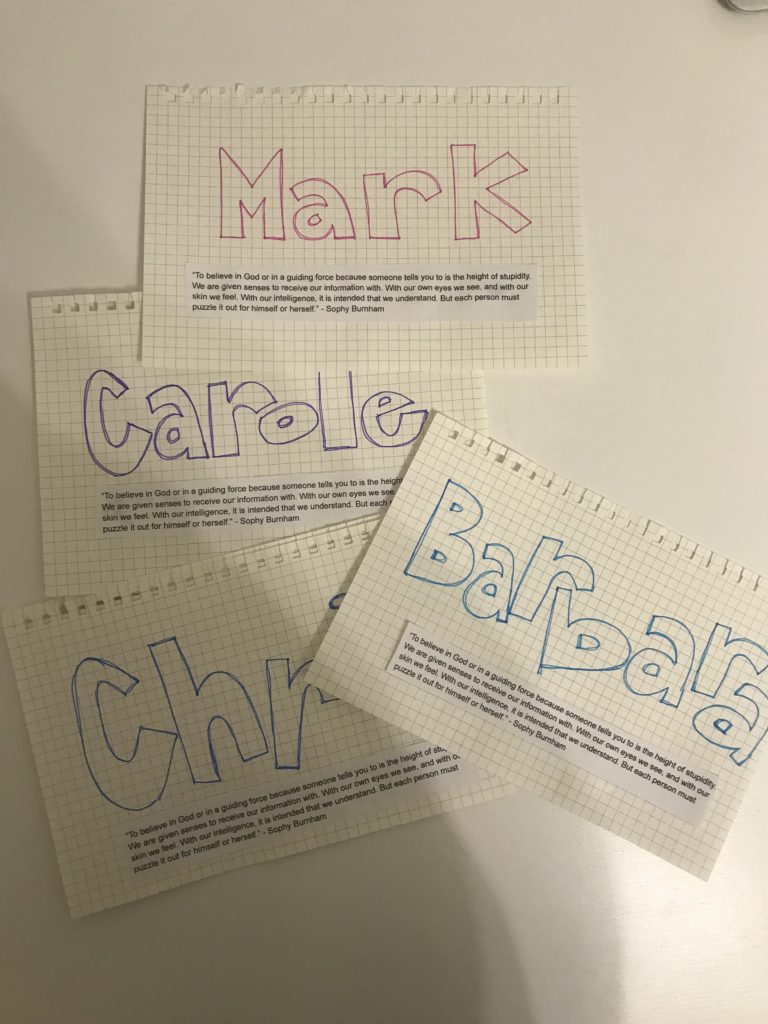It’s just that what happens in Autumn, the turning of the world, the falling, the settling, the letting go, screams to be described into significance. Or maybe it’s the other way around – we are screaming for significance in our turns, in our falls, in what we settle into, in what we let go of, and a leaf the color of grilled corn on the cob catches our eye (who are we kidding, we’re searching for that color), and we say, “Yes, yes! That’s exactly the thing I’m looking for!”
Sunday evening I drove down Packard, one of the main roads in town, to pick up Harper from Youth Group. It was only 72 hours into Autumn, but summer was nowhere to be found. The sky was heavy with grey clouds, I had a sweater, pants, and wool socks on (I might’ve been being dramatic with the socks, but they’re cozy), and leaves that had already fallen were making that scratching sound they make when they’ve run dry, when they must claw their way back into the soil.
There was still plenty of green, though, except for on Packard, the tops of the trees that bordered the road had sprinkles of yellow – like twinkle lights, like lightning bugs – and they popped and sparkled underneath those grey clouds that were doing their best to hold back the fading blue of the coming night. This is what strength and grace are, I thought as I drove past the trees, to instinctively reach for the light, to create beauty, even in death, even when you know something colder, something menacing, something fierce and maybe wicked is on its way.
Autumn gives us color and texture and wind and grey skies and leaves that remind us of the Phoenix bird when she bursts into flame at her death. It gives us new ways to say what we’re living through, and what we’re feeling.
If I were a teacher, I’d share this moment. I’d turn it into a mini-lesson. “What do strength and grace feel like? What do they look like? What do they taste like?” Alas, I am not. I cannot bring this prompt into the Concordia Registrar’s office that is also the Billing, Financial Aid, and Human Resources office. They would look at me like I’m crazy, and I think everyone there thinks I’m still not so bad.
So I shared it with a group of people at church before our monthly meeting. “Let me tell you about these leaves,” I said. “What can you do for language that has become overused or phrases that are trite and seep with overtures like a pancake with too much maple syrup: hope, faith, love, ‘It’s a God thing,’ ‘But God.'”
Give us those yellow leaves dying and reaching into the night sky.
I wrote each of their names in block letters and like the teacher in me that won’t let go, challenged, I mean encouraged them to write down words and phrases for where and how they experience God this week. The reason I wrote their names is because I wanted to harken to the verse in the Bible about being wonderfully and fearfully made. “No one sees the world exactly like you, and no one can present the world exactly like you,” I said. My friend, the writer Jenn Batchelor, likes to ask, “What is your specific story for a universal theme?” That’s what we’re called to do, don’t you think? In the infinite ways we’ve been created, and in the infinite ways we experience the world, we are called to create and share in order to connect; to commune. Sharing stories is communion, don’t you think?
Because what is faith but seeing anew the seasons that turn again and again and believing that in each of them that we are sure we know so well, we will learn something new, we will grow, we will change, we will turn into light as we reach toward the dark that thinks it has the power to hold back what it does not understand.


Leave a Reply